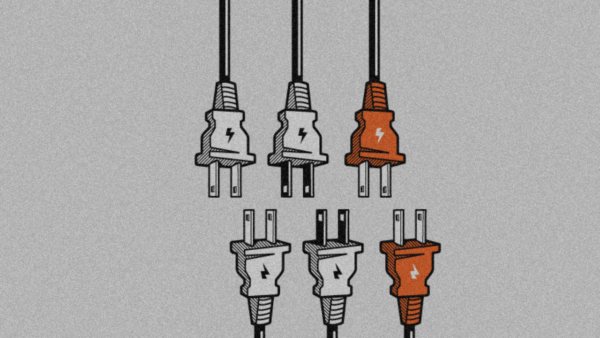Frequently fuses getting blown in your washing machine is common… to some extent at least.
The better news is that most times, a blown washing machine fuse is an easily solvable problem.
It’s very relatable to feel irritated and annoyed when you have a large pile of clothes and your machine isn’t working properly.
This is why we have laid down some of the most effective tips to fix washing machine fuses and keep them from blowing.
Let’s get started.
Common Reasons for Washing Machine Fuses Blowing Up
Before you read our fixes, here are a few common reasons why your fuse could be blowing up:
- Using extension cords.
- A bad power supply.
- A broken plug wiring.
- Too much load due to other appliances in the house.
- There is a problem with the mains in the house.
- Faulty components, such as the heating element.
- Faulty wiring within the appliance.
How Does a Fuse Work in a Washing Machine?
The fuse in a washing machine acts as a protective barrier against electrical overloads.
It is a crucial component that prevents damage to the machine’s electrical system.
If a fuse blows, it interrupts the electrical flow to the washing machine, safeguarding it from potential harm.
A UK washer usually sits on a 32 A ring main protected by a breaker and carries its own 13 A fuse in the moulded plug.
- Fuse blows, breaker stays up → fault lives in the plug, flex, or inside the machine.
- Both fuse and breaker trip → could be a crushed cable in the wall, or too many high-load appliances on one spur.
- Breaker trips but fuse survives → Look for earth leakage rather than a dead short.
Kill power at the fused spur, fit a new fuse, and pull the machine forward for a proper look before you toast another cartridge.
Identifying a Blown Fuse
Before you call Georgi’s Services to fix your washing machine and other appliances, take a look at some of the most common symptoms of a blown fuse:
- Complete Power Failure: The most obvious sign of a blown fuse is a complete loss of power. If your washing machine suddenly stops working and there are no lights on the control panel, it’s a possible indication that the fuse might have blown.
- Tripped Circuit Breaker: In some cases, a blown fuse can trip the circuit breaker in your home. If you find that the washing machine has suddenly stopped and the circuit breaker in the electrical panel has tripped, there’s a good chance the fuse is the culprit.
- Burning Smell: A burnt smell emanating from the washing machine is another possible indicator of a blown fuse. If the fuse has melted due to an electrical overload, it may produce a distinct odour.
Common Causes of a Blown Washing Machine Fuse
Disclaimer: Before working with an electrical appliance, ensure that the appliance is switched off from the mains. If you are unsure about any of the work that needs to be carried out, contact a professional. This blog among every other blog we publish on our website (g-services.co.uk) is strictly for educational purposes. While we may occasionally recommend carrying out some standard checks by yourself, you’re responsible for ensuring it is done safely. We do not accept any liability for accidents which you have caused by following our blogs.
1. Machine Overloading
Overloading the washing machine is one of the most common mistakes that every washing machine user makes.
When you exceed the machine’s recommended capacity, it will likely strain the motor of the machine – potentially leading to a blown fuse over time
Solution: Begin by ensuring that you are not overloading the washing machine. Your machine’s user manual will have all the information you need about the load capacity of the machine. Redistributing the load or removing excess clothes can alleviate strain on the machine and prevent future fuse blowouts.
2. Faulty Wiring
Wiring issues are common in households.
Even though your washing machine itself may not have wiring issues, certain wires in your house may.
Wiring issues within the washing machine or the power supply cord can cause a short circuit, leading to a blown fuse.
Regular wear and tear, rodents, or manufacturing defects can contribute to faulty wiring.
Solution (1): Examine the power cord for any visible damage such as frayed wires or exposed conductors. If you find any issues, it’s crucial to replace the power cord promptly. Using a damaged cord can pose serious safety risks and contribute to blown fuses.
Solution (2): If the circuit breaker has tripped, reset it and attempt to turn on the washing machine again. If the breaker trips repeatedly, there may be an underlying electrical issue that requires professional attention.
3. Heating-element earth fault
Elements sit in hard, soapy water at 60°C, and eventually the metal sheath pits.
Once water meets the live coil, current leaks to the stainless tub, and the fuse goes down during the first heat-up.
Solution: Drain the machine, pull the rear panel, unplug the two heater tags, and clip a meg-ohm meter between either tag and the metal bracket. Anything below 20 MΩ means the heater is leaking to earth.
Solution 2: Loosen the central nut a few turns, tap the stud to release the clamp, ease out the old element, clean the seat, lube the new gasket lightly with washing-up liquid, slide it home, and retighten. When you’re done, run a hot-wash maintenance cycle (the vinegar routine in our damp-smell guide) to give the new element a clean start.
4. Motor brush arcing or armature short
A carbon-brush motor draws a sharp surge each time it ramps from wash speed (about 55 rpm) to spin (1,000-1,600 rpm).
When those brushes wear down to stubs, they stop bending gently on their springs and begin sparking – tiny arcs that bridge live to the earthed frame and pop the fuse.
What you’ll notice: The program fills, tumbles, and drains exactly as it should; then, as the drum starts the spin ramp, there’s a blue flash behind the rear panel and the machine goes dark. A new fuse repeats the performance every time.
Proving the fault: Unplug the washer, pull the back panel, and slip off the drive belt. Spin the pulley by hand—rough spots hint at bearing issues, but the real test is visual. Remove the motor (two bolts on most UK brands), pop each brush free, and measure it: anything shorter than 10 mm is past its service life. While the brushes are out, look at the copper commutator: charred, pitted bars point to ongoing arcing that only new brushes can’t cure.
If the commutator is copper-bright and smooth, fit a matched pair of brushes (£12-£18). If it’s blackened or the winding insulation smells burnt, swap the whole motor (recon units run £60-£90 and bolt straight in).
Re-seat the belt, refit the back, insert a fresh 13-amp cartridge and run a spin-only test. A silent, steady ramp to full speed confirms the fix.
Once again, if unsure, contact a local professional for an efficient and reliable repair.
5. Water Damage
Water and electricity are a dangerous combination, which is why they often lead to problems such as burnt fuses.
Inspect the washing machine for any signs of water damage, such as a leaking hose or a malfunctioning water inlet valve.
Water wins every time it reaches a live conductor. A cracked soap-drawer, perished door gasket, or pinhole in a tub hose can drip onto the harness or the door-interlock switch. Once copper is wet, even briefly, its resistance drops, current leaks to the cabinet, and the fuse blows.
Where to start looking: Open the lid or rear panel and follow your nose: damp-electrics faults smell steamy rather than burnt. White detergent streaks or brown rust trails down the sidewalls map the leak path. Door-lock shorts tend to blow the fuse the instant you press Start—much like a mains-filter failure—but you’ll often spot moisture beading on the lock body.
Fixing both halves of the problem: First cure the leak itself. If the soap drawer dribbles, scrub away congealed powder; if the door seal is split, fit a new one. Next, unplug the loom, dry it thoroughly with a hair-dryer on the cool setting, snip off any green or blackened spades, and crimp on fresh insulated terminals. A new door-lock costs less than £20 and takes five minutes: two Torx screws and one plug.
Run a 60 °C cotton cycle with the top still off; torch-inspect the harness at mid-wash. If it stays bone-dry and the fuse lives, you’re done.
Conclusion
Even though replacing a fuse is always an option, you should always try to find the problem and find a solution to the problem first.
However, there’s only so much an ordinary person may know about washing machine fuses.
And that’s why you should seek the expertise of professional washing machine experts like Georgi’s Services.
Attempting complex repairs without the necessary knowledge and experience can lead to more significant issues and safety hazards.
You can contact us directly at 07729 435106, and we would love to give you a price estimation, regardless of whether you are in our service area.
We highly recommend checking out our prices too.
And if you need a washing machine repair, you can contact us.

